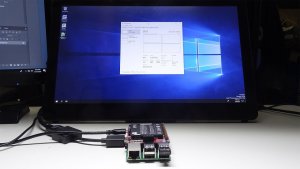Halon
Gawd
- Joined
- Aug 13, 2004
- Messages
- 856
Not if Apple designs their own ARM CPU that no one else can use...
If you can make one reliable prediction about Apple's behavior on hardware built in-house, assume they will err toward control freakery. I'll be interested to see when someone gets Linux running on an ARM Mac without resorting to animal sacrifice.
![[H]ard|Forum](/styles/hardforum/xenforo/logo_dark.png)

